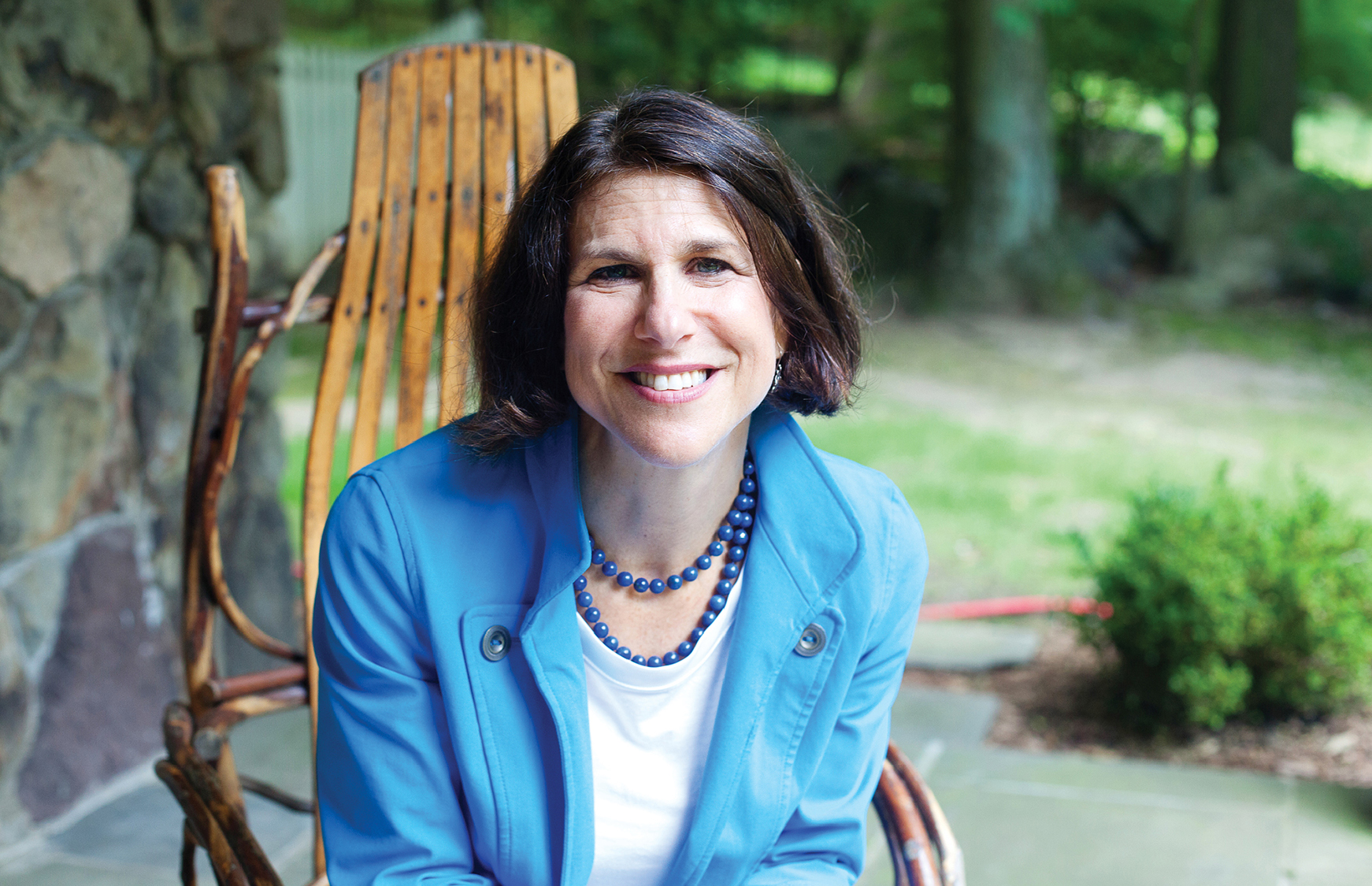Toddi Gutner, 52, has a way of getting what she wants out of life. At the start of her career, she interviewed for a job at the National Economic Research Associates (NERA) that, as fate dictated, had already been filled. Her solution? Inadvertently convince her interviewer to create a brand new position, just for her.
Next, she set her sights on Forbes magazine. Again, despite the fact that no jobs were open, Toddi called every week for six months until she was hired. Following the same MO, an idea for a weekly column sparked the line that eventually led to Toddi exploding onto the scene as Businessweek magazine’s first female columnist.
With a wealth of experience garnered from these big name publications, Toddi ultimately was able to create yet another perfectly crafted position for herself—her own thriving media strategy and communication consulting firm, TLGutner, LLC. Toddi’s story emphasizes that “No” and “Position filled” aren’t necessarily finite, and that victory is about believing in the potential within.
Her Starting Point
Many people find the transition between college and “real life” a bit daunting. Can you tell us about your journey between the two? What was your first job post-college?
After living on a Kibbutz in Israel and traveling through Europe for a year, I moved to Washington, D.C., where I got a job as an economic analyst at an economic consulting firm called National Economic Research Associates, or NERA. I answered an advertisement in the Washington Post, but the woman before me got the job. I ended up having such a nice conversation with the man who was hiring that he created another position for me (and became my boss). In this position, I researched and wrote reports for a managing director who provided expert economic testimony in legal cases. I worked there for five years.
What factors influenced you to first pursue a career in business journalism and, later, public relations?
At NERA, I found out how much I enjoyed researching, reporting and writing. I decided not to pursue my original plan to get my MBA and, instead, got a MA in journalism. Once at Northwestern, I remembered one bit of advice: focus in one area. I figured I had an extensive business/economic background and it was the beginning of the Bull Market when editorial pages in magazines were plenty. I had taken the magazine track at Northwestern as opposed to the newspaper track because I wanted to do long form journalism as opposed to daily reporting.
My role in public relations is really just using the same skills I use as a journalist to help those I would normally consider a source. I left my staff job at Businessweek in 2006 and didn’t want to go back on staff full-time. I wanted to continue to do long form journalism, which is much more difficult in this new media world, so I’ve turned to writing books.
How does your experience in media strategy differ from your role as an independently working journalist?
My role in media strategy really is complementary to my role as an independent journalist because I can help companies think how a reporter thinks. I don’t really consider it public relations as much as media strategy or communication consulting because most of the things I do don’t include pitching stories to reporters.
Many small to mid-size companies can’t afford the $10,000 a month minimum that many NY-based public relations agencies charge. It just so happens that those are the companies where I feel I can provide the most impact. They either have a marketing/communication person on staff or in cases, outsource the entire function to me. Most of these companies don’t have a messaging platform. In today’s fragmented media world, companies need to be able to say who they are, what they do and why anyone should care in 50 words or less—the amount of space on a smartphone screen. No consumer, reporter or potential client has the attention for anything much longer.
To help them do that, I take them through an in-depth, “data-dump” interview. It helps the client begin to think and then communicate in a more streamlined fashion. Once armed with the content from our interview, I craft a number of messages to develop a client’s elevator speech, website content, tag lines, story ideas for journalists and more. These interviews take six to eight hours and the same amount of time for me to synthesize the data. Prior to the interview, I research the client and the industry similarly to the way I report a story. It takes another day or two to craft the content that is requested, whether it is story ideas and the targeted journalist, web site copy or whatever else they need.
Targeting a journalist requires its own research—reporters hate nothing more than a pitch that is not specifically geared to them—but that requires reading the last six to eight articles they’ve written and knowing their tone, style and publication. It takes a lot of work and time to get it right. With that information, I usually guide an in-house marketing or communications professional so they can successfully raise the profile of their company through media.
Her Big Break
You’ve worked for several formidable companies, including The Wall Street Journal, Businessweek and Forbes. Were you ever intimidated by your colleagues, perhaps when you were first hired? If so, how did you deal with nerves?
Yes, I was definitely intimidated by my colleagues at various times during my career—less so as I became more confident in my skills and then finally pitched a column idea at Businessweek that allowed me to become the first woman columnist at the magazine. I realized then that it is all about ideas.
I worked to keep the focus on myself and not on what everyone else was doing. To keep the focus on myself, I often made sure I didn’t work in a bubble or a vacuum. By that I mean I always tried to make sure I was aware of what others were doing—both their successes and their challenges—so that I didn’t think I was the only one who struggled or was intimidated at times. Ultimately, if a colleague intimated me, I did my best to get to know them—that made them more human to me.
Networking is crucial, but big companies can sometimes seem unapproachable, especially for someone just entering the workforce. Can you tell us about your experience with networking and how you’ve approached the companies you wanted to work for?
I had an internship at Forbes and knew I wanted to work at the magazine full-time after I graduated Northwestern. The problem was there were no openings, but that didn’t stop me. I called every Thursday at 4:00 p.m. to speak with the hiring editor. Even if he didn’t pick up the phone, I left a voicemail. I gave story ideas so that, instead of just telling him how much I wanted the job, I shared what value I could provide the magazine. I did that for six months and got the job.
Businessweek and the Wall Street Journal both came through networking and former colleagues. One of my colleagues at Forbes went to BW and he recommended me for a position that had opened. One of my colleagues at BW became an editor at the WSJ so she hired me, and the same thing happened with my role as a contributing columnist at Reuters and MSN.
Even now, as an independent journalist and consultant, every job I get is through networking. If there is a company I want to work for, I think of how I can add value and then I think of everyone I know who has a connection into that company. I tap my network and try to find out if I can get an introduction to a company where I want to do business. But I also make sure I let those who help me know that I am more than happy to do the same for them.
In the field of Journalism, do you think it’s necessary to pursue a graduate school education? When you are in the process of hiring employees, do you give preference to people with a graduate degree?
The field of journalism has changed a great deal since I started out in 1990—at that time, there were few premier outlets and it was highly competitive to get a position. With the advent of new media, everyone can have a voice. I don’t necessarily think it is mandatory to pursue a graduate school education in journalism. The bottom line: you can learn it on the job. A graduate degree, however, might get you to where you want to go more quickly. I had my sights set on specific outlets and nearly everyone had a graduate degree, though not always in journalism.
I think it is a good strategy to pursue brand names in whatever field a person chooses, whether it's business, law or medicine—whatever. I always tried to go with the top companies in whatever field because I knew I’d be surrounded by the best and the brightest in the field and that I could learn a lot.
When I hire employees, I am more focused on their work experience—what they have done—than whether or not they have a graduate degree in journalism. I want people who can hit the ground running and a graduate degree doesn’t necessarily guarantee that. I have found that those who have specific goals and the desire to work hard to obtain them are often the best employees.
With your weekly column HERS, you became the first woman columnist at Businessweek. Tell us about the process of creating the column and approaching Businessweek with the idea.
I see a story idea in everything. Being a good journalist is someone who makes connections and sees patterns in the world around them. I also find it easier to write about something that I am personally interested in. I have always been interested in women in business. There are three girls in my family and my father always told me to make sure I could support myself. I think that message made me understand that a woman should never be dependent on a man for economic support—that means that their personal freedom will never be compromised.
I had been reading a lot about women and money—it was the beginning of the time when women started to become breadwinners in larger numbers, but also still relied on men for various reasons to do their investments. It also was a time when financial institutions were beginning to wake up to the women’s market. I tied it all together and approached the editor in chief about my idea. I initially suggested it as an online column and he suggested a weekly column in the magazine.
It is all about ideas and not being afraid to suggest them.
Her Perspective
How has having a Masters in Journalism and a B.A. in Economics affected your career? Do you think that you would have had the chance to work for these companies without the degrees you’ve earned?
They are good credentials to have and they may have gotten me in the door, but I really believe it is more about old-fashioned nose-to-the-grindstone work and the ability to show your value everyday that makes someone successful. The economics degree got me my first job and probably helped to get me into journalism school. The Master’s probably got me the internship at Forbes magazine while I was in graduate school.
There are many unpaid internships available to millennial women, but few paid positions, especially for aspiring journalists. Do you think unpaid internships are valuable?
I started as an unpaid intern and I think the position was invaluable. I had never written an article before and I had taken a journalism course at the University of Maryland to see if I liked it. After I applied to Northwestern, I walked into a very prestigious magazine in Washington DC (National Journal) and asked for the opportunity to write for them for the summer. They had already hired their summer interns so there wasn’t a job available, but they gave me the opportunity to work for them anyway. I got several articles published and I think that is another thing that Forbes found attractive—that I had non-stop internships and jobs throughout my graduate school experience.
You’ve work as a journalist, economic analyst and a public relations strategist. Which of these positions has been the most challenging?
My 20+ years as a journalist has been the most challenging. As an economic analyst, I was still learning what I was passionate about. When I became a journalist, it was my passion and it consumed me because I wanted to be the best reporter and writer I could be. My goal was to be in a position where I could write about what I thought was important—but to get that freedom, I had to put in a lot of hours—and really learn how to write and ask hard questions.
If we had the chance to peek at your schedule, what would an average day look like?
It depends on the day. If it is a book writing day, I just write. That means I get to my office no later than 8:30 or 9:00 a.m. and write until 6:00 p.m. I take a break for lunch and/or to workout.
Book writing is a bit more arduous than journalistic writing because you can’t finish it in a day. But what I do is make sure I have mini daily deadlines so it feels like I’ve “finished” something for the day and met a deadline. For the book I am writing now, I write two to three days a week and try to have a chapter due every one to two weeks, depending on the content. Within each day, I break down my goal for the day to make sure I meet the overall deadline of completing the chapter within a week or two. After I get all the information down that I want to write, I then go over it several times to add other layers such as literary techniques or to perfect the voice and content.
If I have a column due, I make sure I file on time. It usually takes about a day to report the column—I do a literature search first, research sources on social media, websites, etc., then reach out to them to report the story. The next day, I write the column, and that usually takes two to three hours. I give myself a day and a half to write a column.
My writing process often takes place away from my computer. I always write my story lead while working out—running, swimming, biking—or in the shower. That way when I sit down to my computer, I am not facing a blank page—I already have the beginning written in my mind. Then I do a quick outline, combing through my notes to pull out the most important, salient points. Then I fill in the story. I don’t do many drafts—usually only one—and then review before I file.
If I’m consulting, as I did for Bliss Integrated Communication, I take care of any number of duties: draft website copy or a byline, create corporate messaging, brainstorm story ideas to help a client become a thought leader, media train, among other responsibilities. When I’m media training, I try to help the client think like a reporter. If there is a specific interview for which the client needs to prepare, I do a “deep dive” with the client and ask many of the questions that he or she can expect from a reporter. I make sure to include the tough questions. Once they answer, we critique the response. I help them with strategies on how to deflect unwanted questions and focus the reporter in another direction.
The field of journalism is changing. Business and public relations have always been competitive. What advice would you give to millennial women seeking a career in these fields?
Whatever field someone pursues, they should want to become the best they can be, and be sure they’re willing to put in the 10,000 hours required to do so.
If you could pin your success down to one thing or one best moment, what would that be?
I think there are two best moments: 1.) When I got the column at Businessweek. 2.) Right now, I am writing my second book and it is a pretty great moment. Writing a book is different than being a journalist. A journalist reports on the world outside them, and a writer must create the story from the inside.
You May Also Like
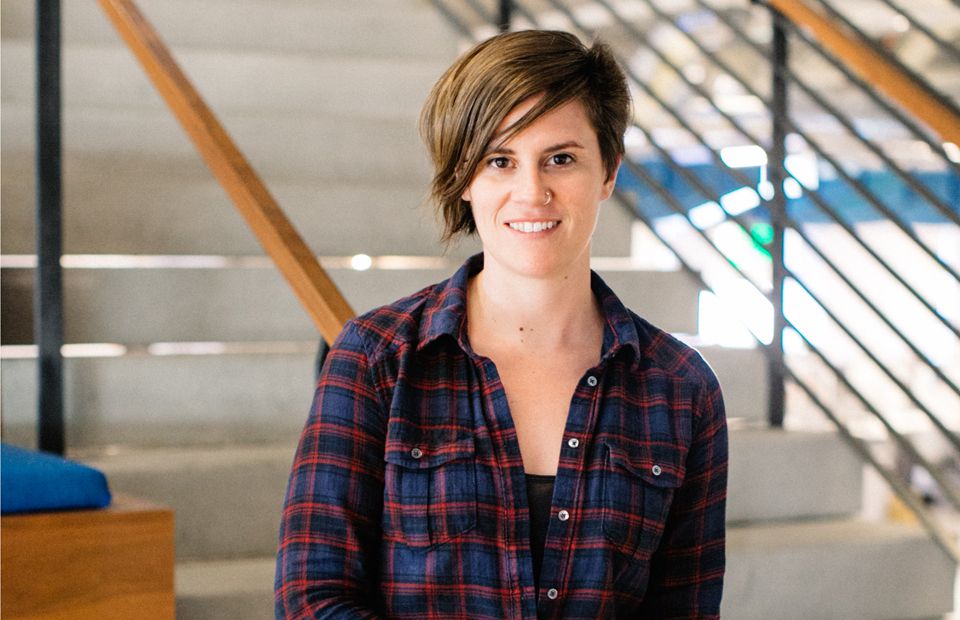
Media
How to Use Positive Reinforcement at Work—and Other Advice from a Pandora PM
"My advice to anyone who wants to get into product management is: check your ego at the door."
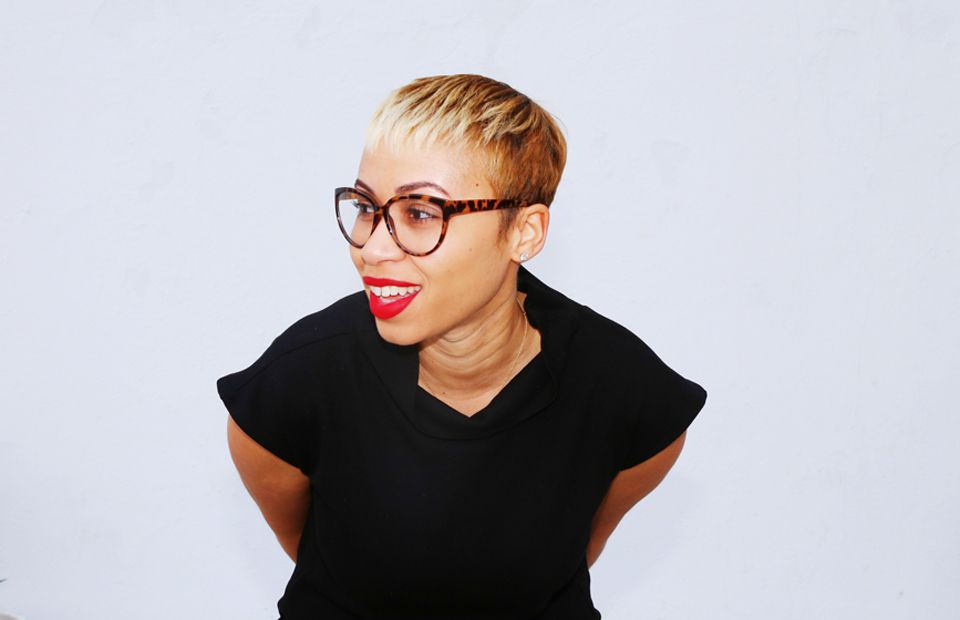
Media, Communications + Public Relations
How to Take Risks, Make a Switch, and Find a Career You Love—From a Woman Who's Done It 4 Times
Making your wildest dreams come true starts with understanding yourself—and Ahyiana Angel can help.
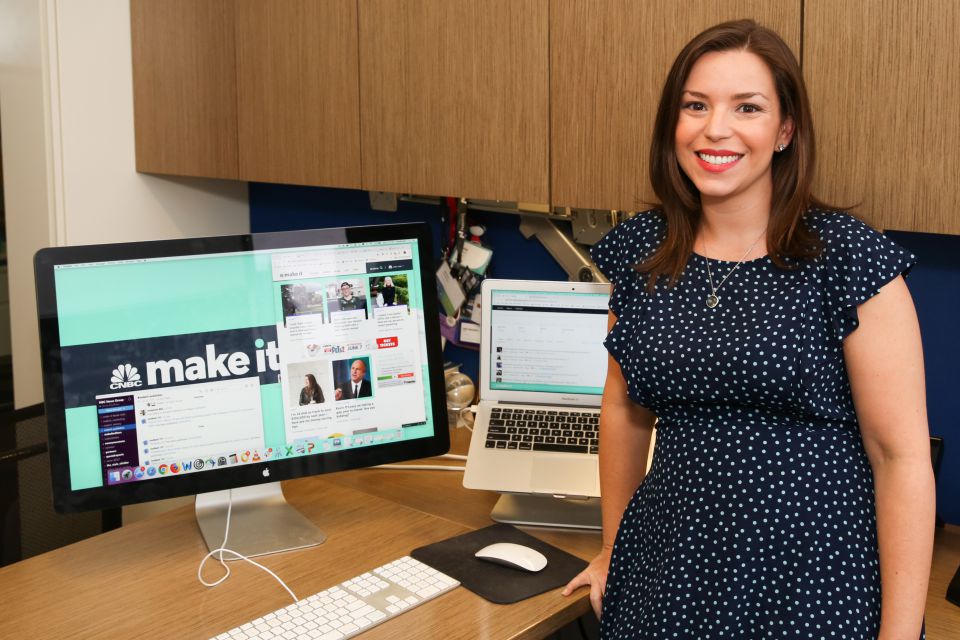
Communications + Public Relations
Creating Content That Empowers Audiences with CNBC's Digital VP and Managing Editor
This week, we interviewed Jenna Goudreau, the VP and managing editor of CNBC Digital. Let's learn how she keeps her powerhouse content creation machine going.
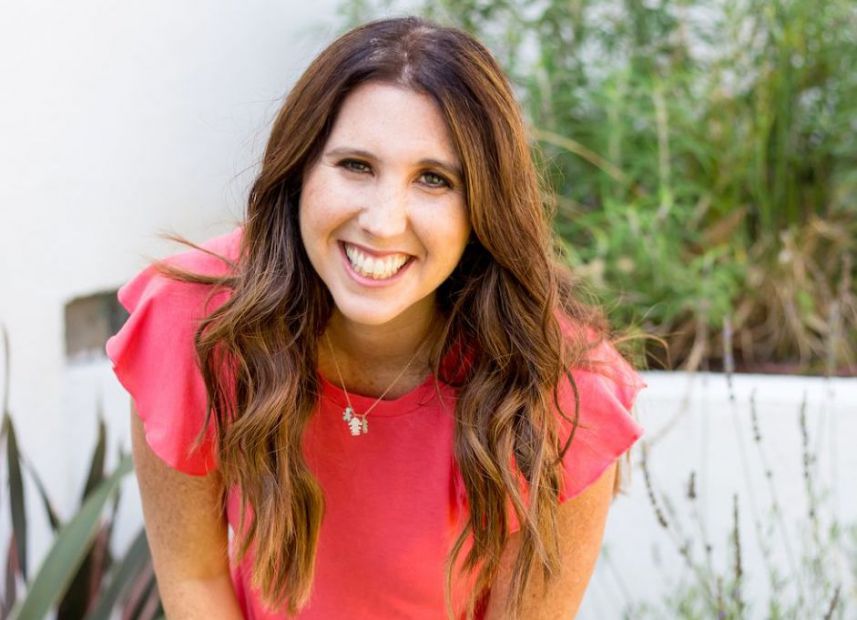
Entertainment
Working Creatively From Home with Cathy Heller
Cathy Heller is a singer, songwriter, entrepreneur, mother—and now, an author. Determined to lift others up to the "happiest versions of themselves," this queen of the hyphenated job title, leads by example. She shared how to build a fulfilling career in a creative field—all while working from home.
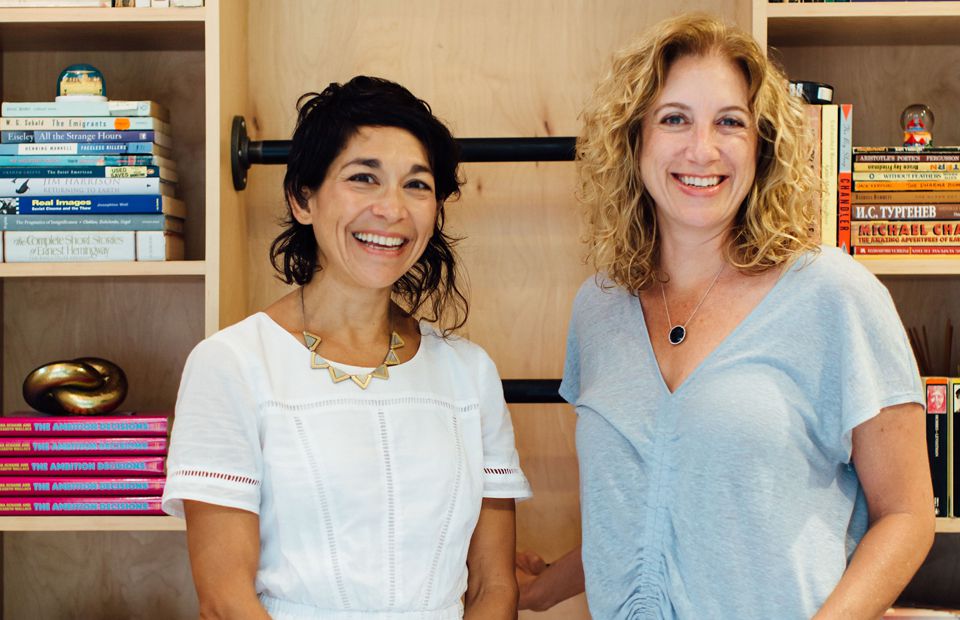
Media
Women, Work, and What It's Like to Write With Your Best Friend—From the Authors of The Ambition Decisions
"We should all give ourselves permission to challenge the things we think can’t be challenged."
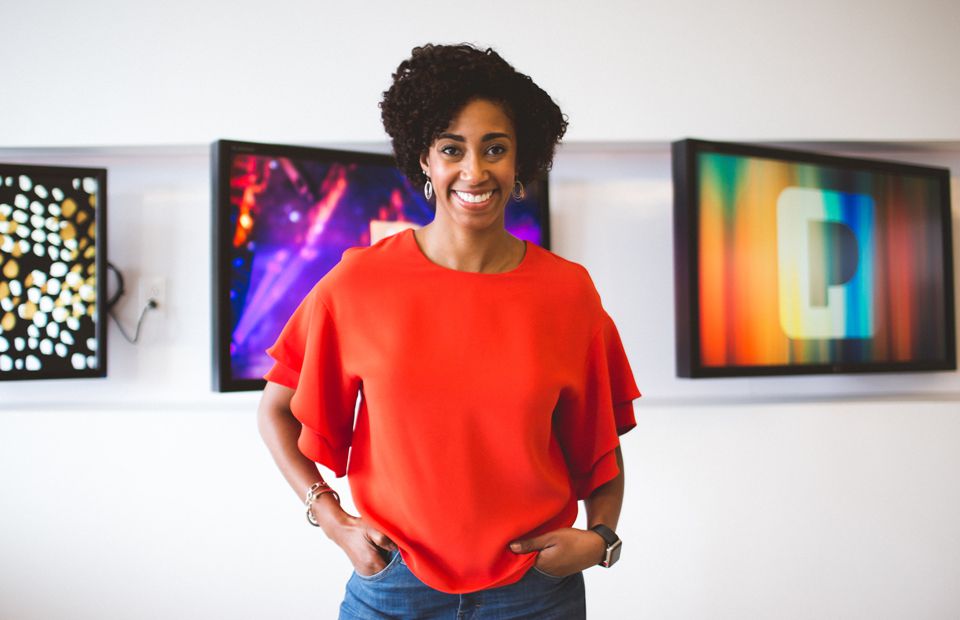
Media
A Director at Pandora on Staying Present, Celebrating Others, and Learning From Failure
"Share your wins, but most importantly, share what your growth areas are, share when you fail, share how you bounced back."
Get the Best Career Advice Delivered To Your Inbox
Join our newsletter to stay in the loop.
